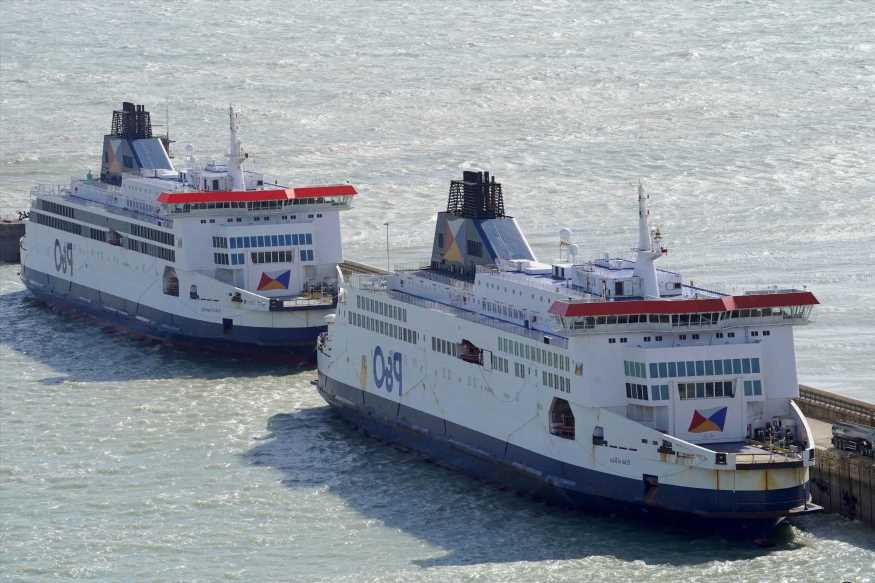By Lisa Baertlein
LOS ANGELES (Reuters) – The fast-spreading Omicron variant stoked U.S. interest in better masks for children to ward off COVID-19, and that is adding fuel to an effort that could set the stage for domestic oversight of their quality.
Adult N95 masks are federally regulated and considered a gold standard. They were among the "better masks" U.S. health officials recommended in January to protect against Omicron. For children, no comparable U.S.-regulated mask exists, and some concerned parents turned to kid-sized masks made to South Korea's KF94 or China's N95 standards instead.
While many U.S. states and schools have since stopped requiring mask-wearing for COVID, disease experts say children will still need high-quality masks for everything from current and future pandemics to seasonal flu and respiratory syncytial virus (RSV) that can cause serious illness and death.
"Every year there are opportunities for masks to make a difference – whether it's in the classroom or in the daycare," said Dr. Steven Krug, an emergency room physician and chair of the American Academy of Pediatrics' Council on Children and Disasters.
U.S. e-commerce sites are crowded with sellers offering children's KF94 or KN95 masks. Most sites do not authenticate those products, and U.S. health agencies do not approve them –
creating fertile ground for fraudsters.
Dr. Jennifer Nayak, a University of Rochester Medical Center infectious disease specialist, told Reuters that mask shopping for her three kids on Amazon.com and other sites spurred questions, including: "Is it real vs. counterfeit? Is it going to fit?"
South Korea is considered a leader for children's masks because it tightly enforces its KF94 standard. Its health ministry says the only genuine KF94s are made in South Korea.
Behealthyusa.net, the direct seller of made-in-South Korea BOTN KF94s in the United States, told Reuters its site sold out of many small-sized KF94 masks during the original Omicron surge.
Los Angeles-based importer Tony Chen, father of 8- and 11-year-olds, started bringing in kid-sized, made-in-South Korea KF94 masks when parents struggled to find authentic masks at affordable prices.
Parents with ties to South Korea pointed Chen to reputable children's KF94 mask sellers there, he said. He flies masks duty-free to the United States under direct-to-consumer shipping rules that lower his cost to 47 cents to $1 each, vs. $1 to $3 on e-commerce sites.
"I'm just hoping I break even," said Chen, who has imported about 9,000 children's KF94s for dozens of families since Jan. 1 and plans to keep going as long as needed.
A handful of other groups also are doing leg work for parents.
Project N95 – which vets mask sellers all the way back to the factory – runs a website that offers a variety of masks for children – including KF94s from South Korea, KN95s from China, and specialty products made by legitimate N95 manufacturers in the United States.
"We do often run out," Project N95 Executive Director Anne Miller said.
Factories produce fewer masks for children than adults, and demand for children's sizes is increasing up to 15% per week, Miller said.
LONG ROAD TO OVERSIGHT
The Centers for Disease Control and Prevention's (CDC) National Institute for Occupational Safety and Health (NIOSH) certifies N95 masks and inspects the facilities that make them. A move is afoot to establish a U.S. standard for high-filtration children's masks, which could set the stage for domestic oversight.
Texas mask-maker Aegle and the University of Maryland's Fischell Institute for Biomedical Devices are designing children's masks that filter like N95s but are optimized for kids' smaller faces and lungs. Aegle Chief Executive Andy Moy aims to start clinical trials at Washington's Children's National Hospital in April.
The standard would define mask materials, measurements and filtration qualities. After that, a standards body or government agency would need to support and adopt it. A federal agency would be needed to enforce the standard, Moy said.
"Only then will parents have the assurance they need," Moy said.
American Mask Manufacturer's Association (AMMA) founder Lloyd Armbrust said success would require ongoing commitment and political pressure.
"These problems are totally solvable, but people have to care long enough," Armbrust said.
(Reporting by Lisa Baertlein; Additional reporting by Joyce Lee in Seoul; Editing by Richard Chang)
Source: Read Full Article
